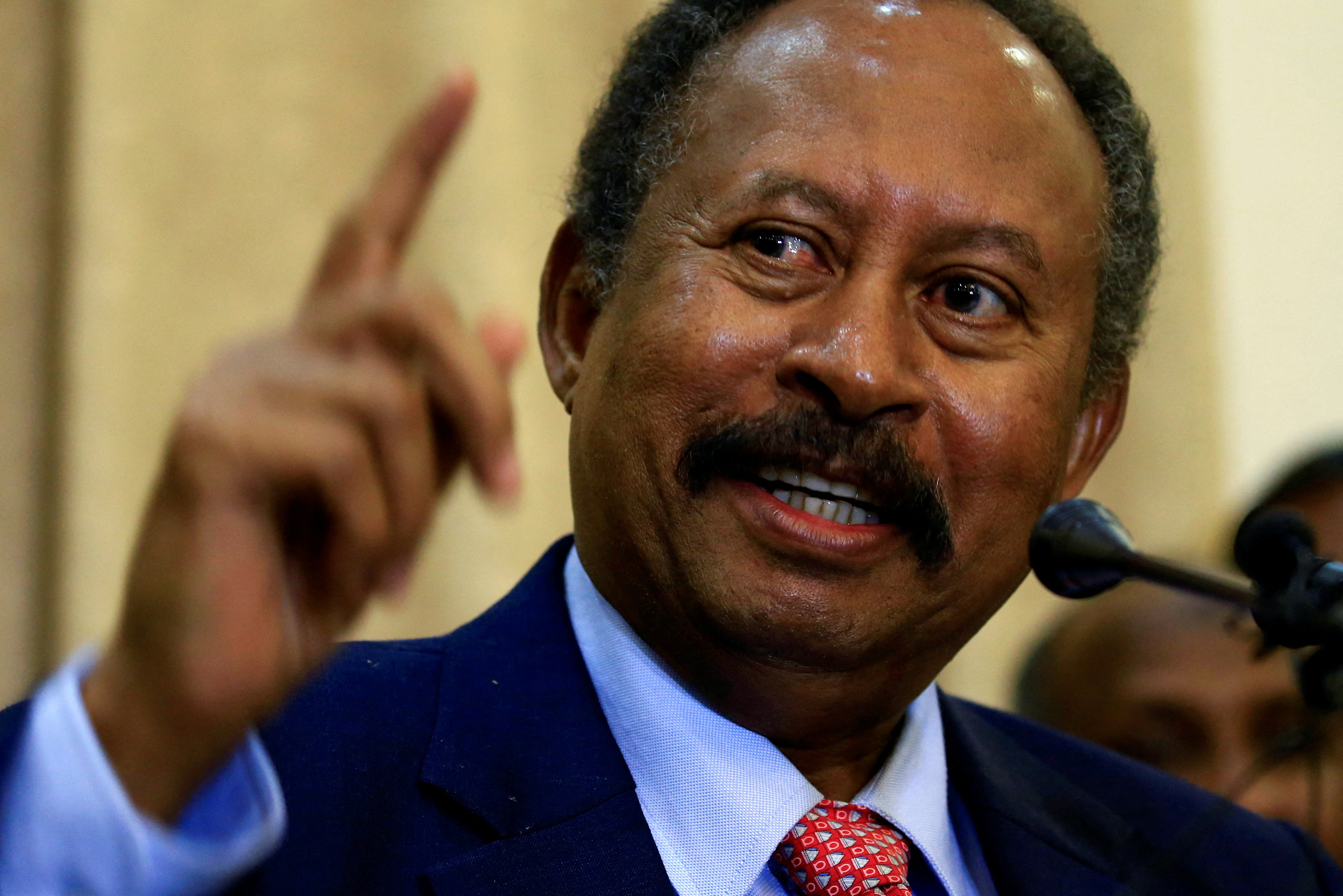Sudan’s PM quits following deadly demonstrations as country’s political gridlock continues
His announcement came after several days of protests

Your support helps us to tell the story
From reproductive rights to climate change to Big Tech, The Independent is on the ground when the story is developing. Whether it's investigating the financials of Elon Musk's pro-Trump PAC or producing our latest documentary, 'The A Word', which shines a light on the American women fighting for reproductive rights, we know how important it is to parse out the facts from the messaging.
At such a critical moment in US history, we need reporters on the ground. Your donation allows us to keep sending journalists to speak to both sides of the story.
The Independent is trusted by Americans across the entire political spectrum. And unlike many other quality news outlets, we choose not to lock Americans out of our reporting and analysis with paywalls. We believe quality journalism should be available to everyone, paid for by those who can afford it.
Your support makes all the difference.Sudan‘s Prime Minister Abdalla Hamdok has resigned following widespread pro-democracy protests in the past few days against last year’s military coup.
Hamdok, a former UN official seen as the civilian face of Sudan‘s transitional government, had been reinstated as prime minister in November as part of an agreement with the military following the October coup. In that time he had failed to name a Cabinet and his resignation throws Sudan into political uncertainty amid uphill security and economic challenges.
In a televised national address on Sunday, Hamdok called for a dialogue to agree on a “national charter” and to “draw a roadmap” to complete the transition to democracy in accordance with the 2019 constitutional document governing the transitional period.
“I decided to return the responsibility and declare my resignation as prime minister,” he said, adding that his stepping down would allow a chance for another person to lead the nation and complete its transition to a “civilian, democratic country”.
He did not name a successor.
The prime minister said his efforts to bridge the widening gap and settle disputes among the political forces have failed.
He warned that the ongoing political stalemate since the military takeover could become a full-blown crisis and damage the country’s already battered economy.
“I tried as much as I possibly could to prevent our country from sliding into a disaster. Now, our nation is going through a dangerous turning point that could threaten its survival unless it is urgently rectified,” he said.
The October coup had upended Sudan‘s plans to move to democracy after a popular uprising forced the military’s overthrow of longtime autocrat Omar al-Bashir and his Islamist government in April 2019.
Four months after, the generals and the protesters reached a power-sharing deal to rule the country through elections in 2023.
However, military-civilian ties have been frayed by the military takeover that has threatened to return Sudan to international isolation.
Hamdok’s resignation comes amid a heavy security crackdown on protesters denouncing not only the takeover but the subsequent deal that reinstated him and sidelined the pro-democracy movement.
Over the past two weeks, there was increasing speculation that he would step down. National and international efforts have failed to convince him to stay in office. The US State Department urged Sudan‘s leaders to “set aside differences, find consensus, and ensure continued civilian rule” following Hamdok’s resignation.
Hours before Hamdok’s resignation speech, Sudanese security forces violently dispersed pro-democracy protesters, killing at least three people, according to the Sudan Doctors Committee, which is part of the pro-democracy movement.
Internet connections were also disrupted ahead of the protests, according to advocacy group NetBlocs.



Join our commenting forum
Join thought-provoking conversations, follow other Independent readers and see their replies
0Comments